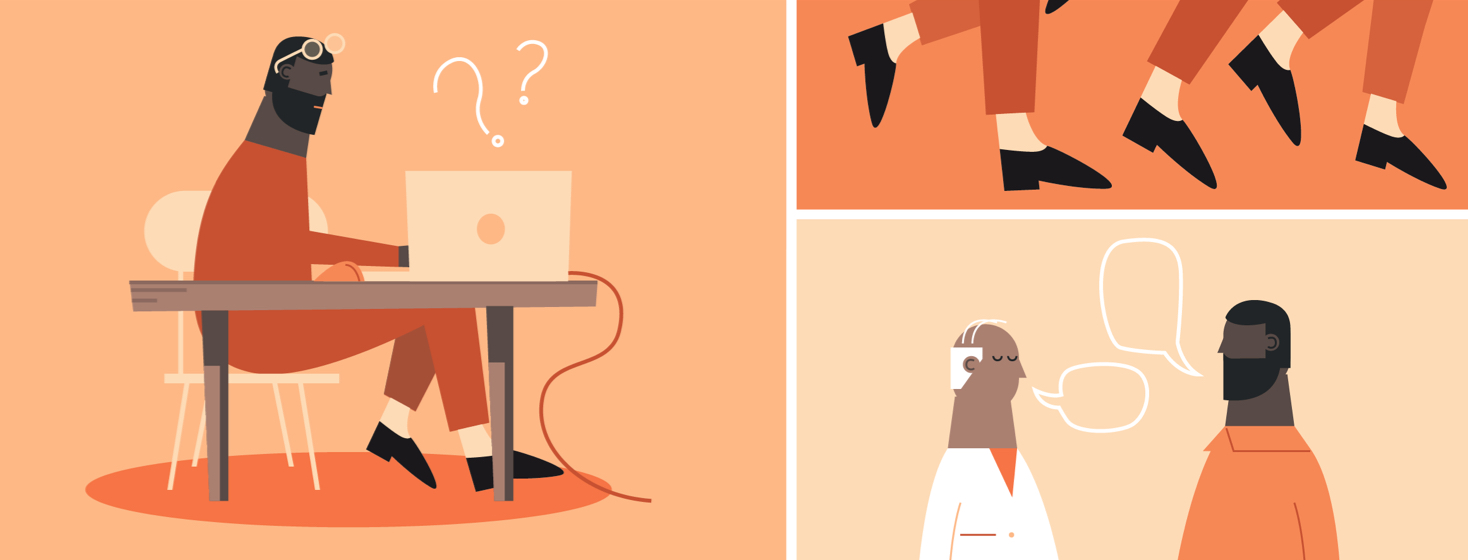Discovering RLS
When I was 30-something, possibly closer to the (what seemed at the time) big 4-0, I heard the name "restless legs syndrome" (RLS) for the first time. Prior to that, I lived in the pre-internet days, and the only way to discover medical terminology was to go to the doctor or to the library. Easy access to information was not available. “Googling” was not a word, although word of mouth was sometimes a handy source of information.
I wish I'd investigated my symptoms earlier
But word of mouth had not led me to hear anything about RLS and had not helped me understand the increasingly distressing sensations that coursed through my legs. The symptoms, however, seemed relatively benign. I had friends diagnosed with cancer and with multiple sclerosis, so complaining to the doctor that I couldn’t sit still very well seemed like such a non-descript, trivial matter – akin to complaining about a chipped toenail.
That was my attitude at the time. I wish I’d had the courage to investigate my symptoms at a much earlier stage.
I constantly had to be on the move
By the time I was pushing that big scary 40th birthday, RLS symptoms were driving me spare and interrupting my already difficult sleep patterns. I was getting very little sleep. I was keeping my husband awake half the night. I couldn’t sit and enjoy television quietly. I constantly had to be on the move.
I had young children at this stage, and anytime they fell asleep on my lap, I had this screaming need to move my legs balanced with a pressing need not to move because I didn’t want to wake the children. The legs always won, no matter how much I willed them to be still.
It was around this time that I learned the art of butt-clenching and pelvic floor exercises, because doing those 2 things always prolonged the need to stand up and have a good wriggle. They prolonged it, but not indefinitely.
My doctor gave me a label
One day, for a completely unrelated reason, I was at my doctor's and I just mentioned to him the irrepressible urge to move all the time. How distressing it was. How I couldn’t sit through concerts. How travel in planes, trains, and automobiles was an act of great courage and many pit stops.
My doctor gave me a label – restless legs syndrome. There was even a questionnaire to fill out and a scale to be assessed. He reinforced the fact that it is a benign condition, meaning it wasn’t going to kill or disfigure me. Though, he also mentioned the possibility of medication – something I never knew was possible.
We discussed lifestyle factors like sugar, caffeine, and alcohol, and I promptly went home to make the appropriate changes. We discussed the importance of staying active but not doing a workout right before bed. I took it all on board. Then he prescribed Valium – the only available medication for RLS in Australia at that time.
It worked for about 4 hours at a time, a couple of days a week. Those little moments of respite changed my life.
I wasn't just being difficult
Having a name for my condition made me feel less strange. It gave me a certain amount of comfort to know that I wasn’t alone and I wasn’t just being difficult. That it was, in fact, unreasonable for me to expect to sit still for hours on end – my body did not have that physical capability.
The doctor explained it was a neurological condition, and that gave it validity.
A profound relief to find a name for my distress
As the internet progressed and Google came to be, I learned so much more about it. I learned that my chronically low iron had a profoundly negative impact. I learned taking magnesium would offset my symptoms for a while. I eventually discovered that, like most things in life, it worsens with age.
Eventually, iron infusions and magnesium supplements could not combat the nerves firing in my legs, but by then I was armed with more information. Knowledge is power. So, I talked to the doctor again and started using different medications that were targeted to RLS, and for me, they worked. That was 15 years ago, and with a lot of ups and downs, they are still working.
Finding a name for the condition I had experienced for a great many years brought a great deal of comfort. It meant I wasn’t going crazy. It meant there were researchers studying it, and therefore other people also suffered. It meant I had something to tell people who just thought I should sit still and stop fidgeting. It was, indeed, a profound relief to find a name for my distress – restless legs syndrome

Join the conversation